Capitalism redefined featuring Nick Hanauer
Transcript
NICK HANAUER: Hello, everybody. So, it has been said that you are what you eat. Maybe. But it is certainly true that a society is what it believes. And, as a society, some of our most closely held economic beliefs, the beliefs that frame our politics, our policy, and our culture, are wrong—and, worse, they’re pretty terrible for us. Because it turns out that virtually all of the conventional economic assumptions we have made these last decades—what we teach in our schools about how human economies work—are objectively, scientifically false. Our behavior model, our systems model, our theories of value and growth. For example, we believed in a behavioral model that holds that people are homo economicus—perfectly selfish and relentlessly self-maximizing. It’s not true. We can be selfish, of course, but decades of science reveals that humans have evolved to be innately moral, reciprocal, and cooperative. What makes us unique isn’t our competitiveness. All animals compete. It is our unmatched capacity to cooperate at scale, which has enabled our species to dominate the planet. We believed that the economy is an equilibrium system within which, if one thing, like wages, goes up, another thing, like jobs, must come down. It’s not true. The economy is an ecology—a complex, adaptive, increasing-return system where when wages rise, for example, so do jobs. Believing that when wages grow, jobs shrink fundamentally mischaracterizes the economic dynamics in these systems, in the same way as if you believed that when plants grew, animals shrink. This is not how the system works. There is no equilibrium in an economy. We believed that price equals value, and that people are always paid their marginal product, exactly what they are worth. It’s not true. Price sometimes equals value, but, please take it from a successful capitalist—we never ever pay people what they are worth. We pay them what they have the power to negotiate. And, for sure, we never pay ourselves what we are worth. We pay ourselves as much as we can get away with.
[laughter]
NICK HANAUER: We believed that the availability of concentrated capital was the principal constraint on economic growth. It’s not true. The economy isn’t money. It’s people. And the more people we fully include in the economy as innovators, entrepreneurs, well-paid and well-educated workers, and robust consumers, the faster and more prosperous the economy grows. Why does it matter that all these academic assumptions are wrong? Because they logically and inevitably lead to a higher-level set of heuristics that has shredded our economy and our democracy over these last decades. Heuristics like, raising wages kills jobs. Tax cuts for the rich create growth. Government is always inefficient. The market is a perfect meritocracy. Greed is good. The rich are makers. The poor are takers. And there is always a trade-off between increasing amounts of economic fairness and justice and economic growth and efficiency. So here’s the thing—there’s a Nobel Prize in economics attached to every single one of those ideas. And they are all wrong. Because here’s the thing—if you accept these neoliberal assumptions, the truth is there is only one economic outcome that is possible. The rich will get richer and everyone else will get poorer. Orthodox economics and neoliberalism have presented itself as science—as immutable, timeless truth. That is a lie. That is a lie. It is weaponized pseudoscience. Neoliberalism is a protection racket for the rich and the powerful. So how do we change our beliefs in a way that will lead to a more equitable society and more prosperity for all? The latest science suggests five rules of thumb. Rule one. The market isn’t a jungle. It’s a garden—and, tended like a garden, markets are the greatest social technology ever invented for solving human problems and creating prosperity. But unconstrained by social norms and democratic regulation, markets inevitably create more problems than they solve. Rule two. Economic inclusion is not this liberal luxury to be afforded if and when we have growth. Economic inclusion is the cause of growth in market economies. The economy is people. The more people we include in it, the better it works. Who’d of thunk it? Rule three. The sole purpose of the corporation is not to enrich shareholders but rather to increase the welfare of all stakeholders—workers, customers, community, and shareholders alike. Rule four. Greed is not good. Being rapacious doesn’t make you a capitalist. Being rapacious makes you a sociopath.
[laughter]
NICK HANAUER: And in an economy as dependent upon cooperation as ours, sociopathy is as bad for business as it is for this society. And, finally, unlike the laws of physics, the laws of economics are largely a choice. So, neoclassical economic theory has presented itself as immutable, natural law, when it is merely a collection of preferences, narratives, and social norms. If we want a more equitable, more just society, we need new economic beliefs. And here’s the good news: If we want new economic beliefs, now we know that all we have to do is choose to have them. Thank you.
[applause]
[New gospel of wealth. What does #GenerosityToJustice look like to you? Ford Foundation dot org forward slash new gospel.]
Accessibility Statement
- All videos produced by the Ford Foundation since 2020 include captions and downloadable transcripts. For videos where visuals require additional understanding, we offer audio-described versions.
- We are continuing to make videos produced prior to 2020 accessible.
- Videos from third-party sources (those not produced by the Ford Foundation) may not have captions, accessible transcripts, or audio descriptions.
- To improve accessibility beyond our site, we’ve created a free video accessibility WordPress plug-in.
Nick Hanauer, entrepreneur and venture capitalist, argues that it’s not a better economic system we need but rather a better understanding of the system we have.
“If we want a more equitable and just society, we need new economic beliefs.”
– Nick Hanauer
Learn more about New Gospel of Wealth
Other videos in this series
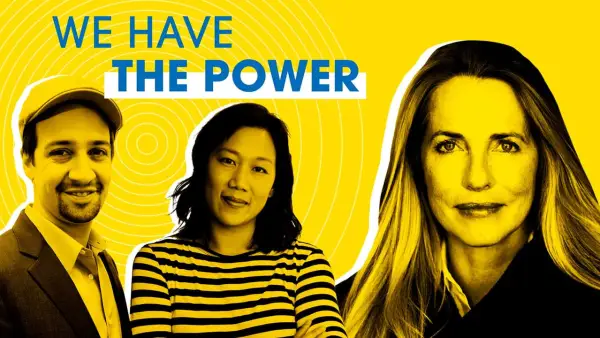
Let’s rethink giving
How can we reimagine philanthropy so that we create a future where there is justice and dignity for all? What are the root causes of the issues and how do we encourage the participation of many and not just a few?
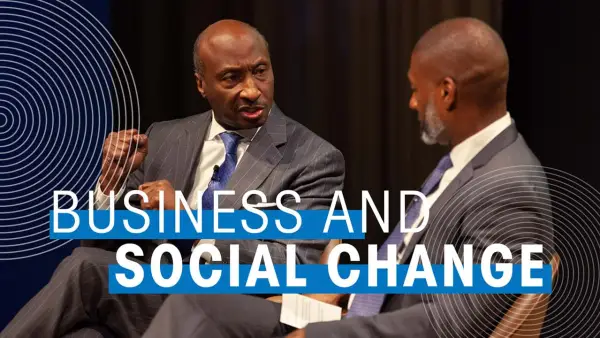
The business of justice featuring Kenneth Frazier and Charles Blow
Kenneth Frazier, CEO of Merck and Co, believes one of the greatest injustices in our society is the health disparities experienced by women of color. A zip code is more likely to determine health outcomes than genetic code. Frazier uses philanthropy to address mortality rate and wants to see more…
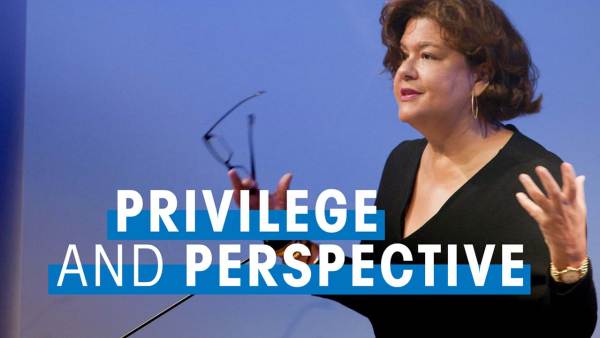
The privilege of perspective featuring Elizabeth Alexander
Elizabeth Alexander, president of the Andrew W. Mellon Foundation, on art, activism, and acknowledging adversity.
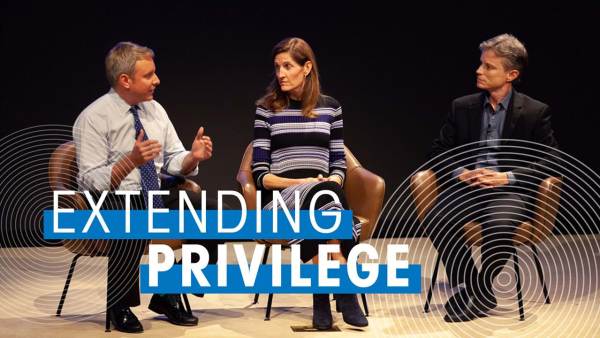
Extending privilege featuring Valerie Rockefeller and Henry Ford III
Henry Ford III, trustee of the Ford Foundation, and Valerie Rockefeller, chair of the Rockefeller Brothers Fund, discuss transforming philanthropy for the 21st century. The families have seen the value of impact investing and believe in partnerships to increase the difference that can be made.
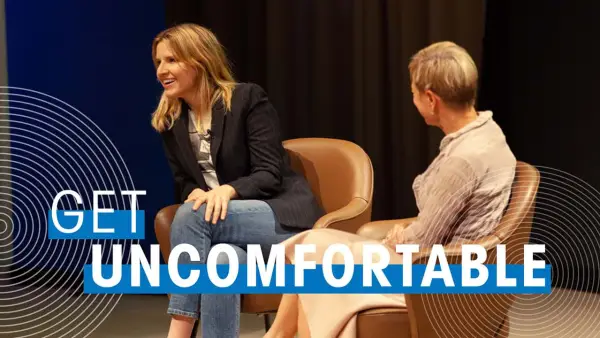
Getting proximate featuring Tara Westover and Hilary Pennington
Tara Westover, author of “Educated,” sees a disconnect between the rural and urban parts of the United States. She believes philanthropists need to be more proximate to the issues they care about, and that spending time with people who aren’t like you is key to disrupting inequality.
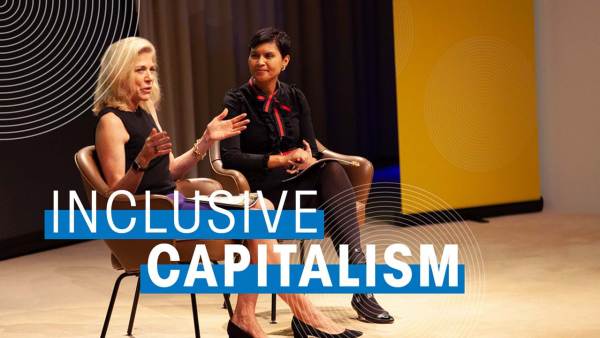
Can capitalism ever really be inclusive? featuring Lynn Forester de Rothschild and Stephanie Mehta
The top 1 percent of the United States controls 42 percent of the national wealth. Lynn Forester de Rothschild, founder of the Center for Inclusive Capitalism, explains that reimagining the economy and making it a sustainable, inclusive system that leads to strong economic growth requires reform.
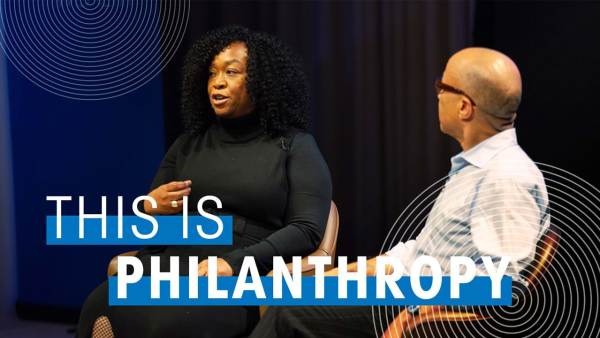
This is what a philanthropist looks like featuring Shonda Rhimes and Darren Walker
Writer and producer Shonda Rhimes has seen the power storytelling has to make change through her work, which centers marginalized people and issues. Rhimes believes philanthropy sets an example others can follow, and says supporting organizations that are already on the ground doing the work is key.
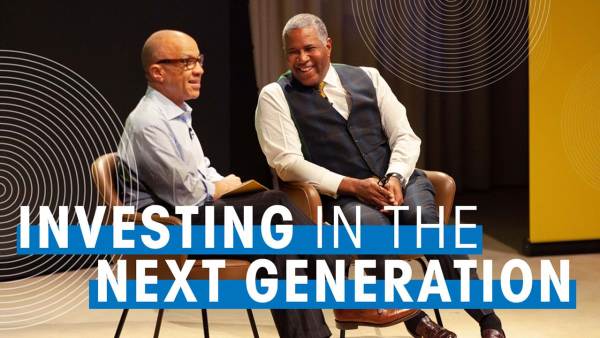
Catalyzing the potential of our time featuring Robert Smith and Darren Walker
Through philanthropy, Robert Smith, CEO of Vista Equity Partners, has alleviated the burden of student debt for a graduating class. He says private philanthropy can help address public policy challenges, such as student loan debt, and is a disruptive opportunity that liberates people to contribute to society in positive ways.
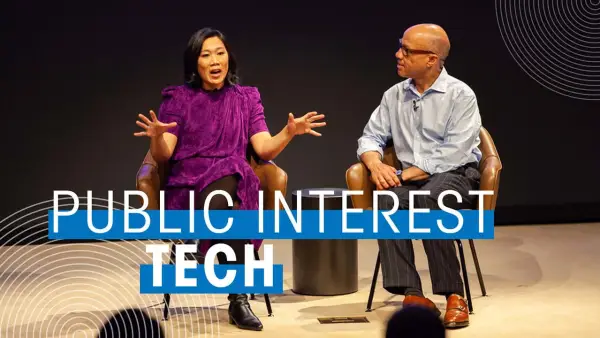
Tech funders changing philanthropy featuring Priscilla Chan & Darren Walker
The top 1 percent of the United States controls 42 percent of the national wealth. Lynn Forester de Rothschild, founder of the Center for Inclusive Capitalism, explains that reimagining the economy and making it a sustainable, inclusive system that leads to strong economic growth requires reform.
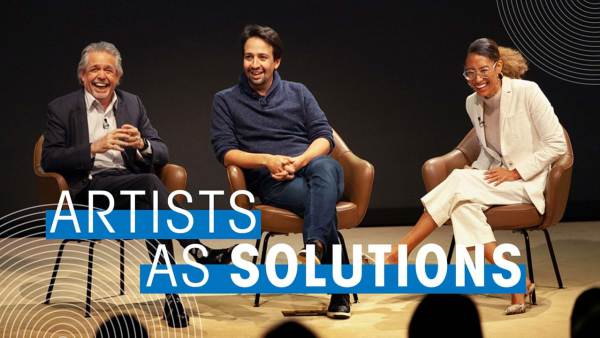
Why artists shouldn’t stay in their lane featuring Lin-Manuel Miranda, Luis Miranda Jr. and Elaine Welteroth
Composer and actor Lin-Manuel Miranda believes all art is political. He and his father, Luis A. Miranda Jr. of the MirRam Group, see the value philanthropy has to empower communities that may have been neglected, and allow them to share their stories through the arts, like Puerto Rico did after…
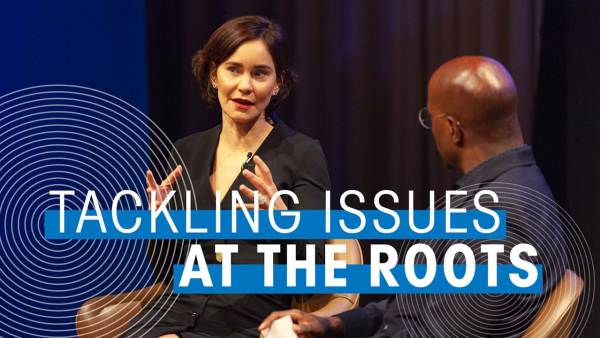
Good philanthropy needs government featuring Laura Arnold and Van Jones
Laura Arnold, co-chair of Arnold Ventures, believes policy change is the lever that will lead to sustainable change. She says we need to attack the systems that are creating the injustices we see, like criminal justice. Philanthropy can create better alternatives that governments can adopt.
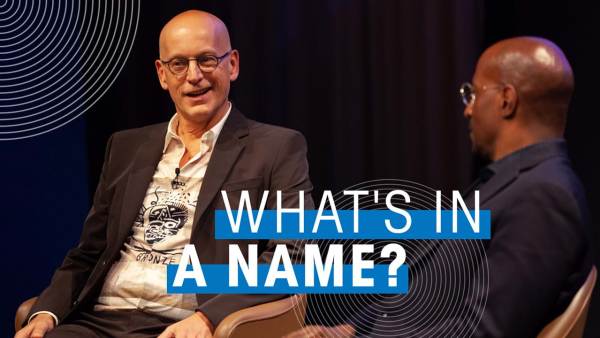
The power of a name featuring Jon Stryker and Van Jones
As a philanthropist, Jon Stryker, president of the Arcus Foundation, believes the act of naming gives power and influence to the work that is supported through his gifts. His philanthropy supports those on the frontlines of justice, providing resources and power to those who need it most.
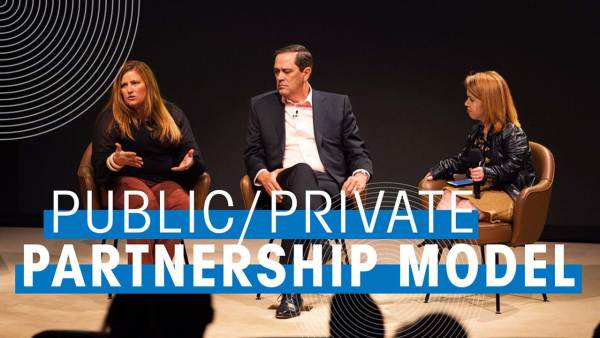
Public-private partnership: A new model for lasting impact featuring Jennifer Loving and Chuck Robbins
Jennifer Loving, CEO of Destination: Home, says a public-private partnership, like the one between her nonprofit and Cisco, headed by Chuck Robbins, can help create a model for the future of philanthropy, and tools like social bonds can help address some of the biggest crises of our time.
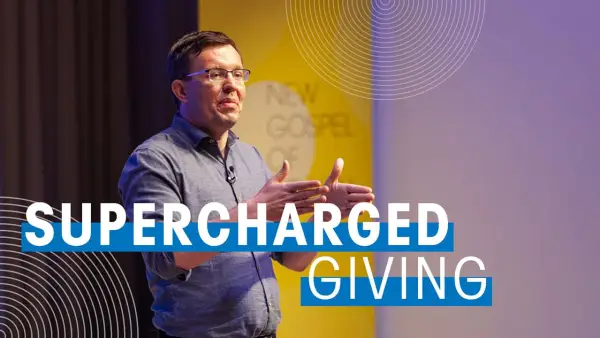
The new power of philanthropy featuring Henry Timms
CEO of Lincoln Center Henry Timms asks how philanthropy can supercharge civic engagement. Timms, who started Giving Tuesday, says trust-based philanthropy needs to shift from generosity to justice, driving more participation from more people, and encouraging meaningful ways to participate and collaborate.
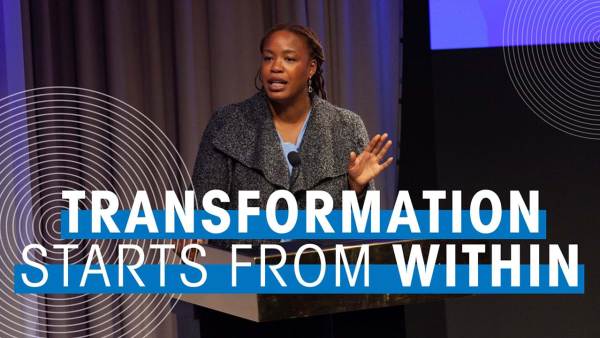
Transforming organizations from the inside featuring Heather McGhee
Heather McGhee, distinguished senior fellow at Demos, shares her experience of working to make the Demos think tank more diverse and led by people of color. Institutional racism, however slight, drives inequality, she says, so transformation needs to be a must-have and not a nice-to-have.
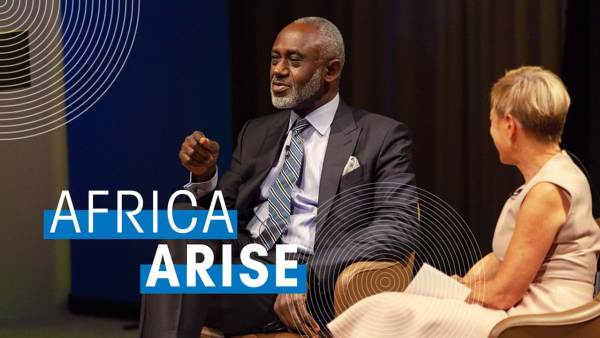
Africa, your time is now featuring Gbenga Oyebode and Hilary Pennington
Ford Foundation trustee Gbenga Oyebode has seen the value of impact investing on the African continent. He believes philanthropy should not just be giving, but investing with a social impact and an economic return. Giving is inherently part of African culture, but needs to be more strategic and collaborative.
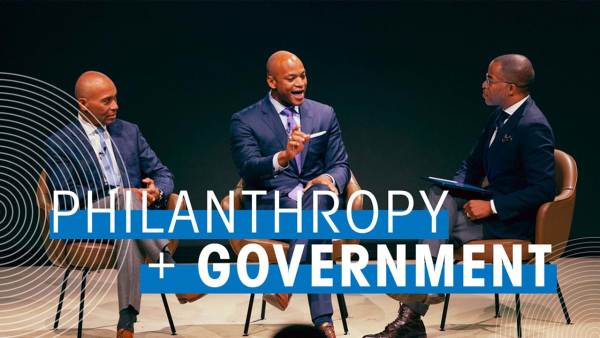
Why good government needs philanthropy featuring Deval Patrick and Wes Moore with Jonathan Capehart
Wes Moore, CEO of Robin Hood, and Deval Patrick, managing director of Bain Capital, see philanthropy working hand-in-hand with government in the fight for equality. Philanthropy can often provide the initial capital needed while government can take over and scale the solution.
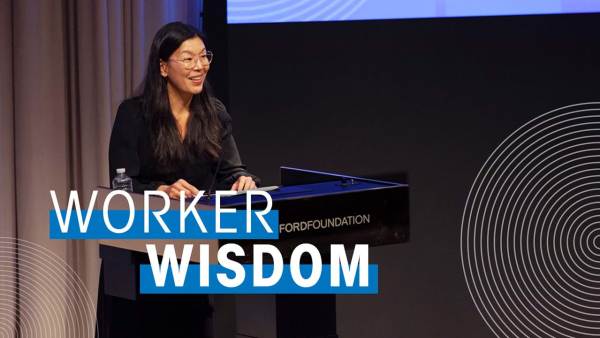
Bringing hidden labor to light featuring Ai-Jen Poo
Ai-jen Poo, executive director of the National Domestic Workers Alliance, says the sector of caregivers and domestic workers continues to grow. Building a future of work that works for all is centered on justice-based philanthropy and not a generosity model.
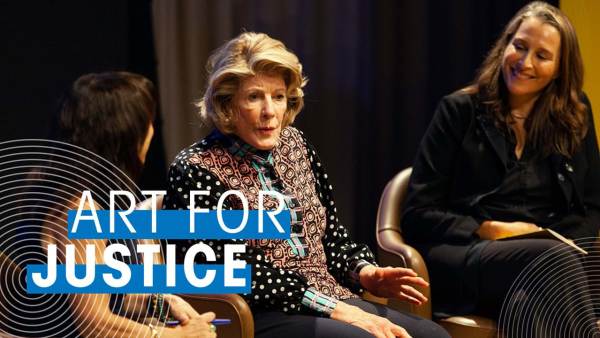
Art for Justice featuring Agnes Gund and Catherine Gund with Maria Hinojosa
The Art for Justice fund was created to help end mass incarceration. Founder Agnes Gund says philanthropy is about addressing issues like this. Catherine Gund believes art has an important part to play in the fight for racial justice and can help change the policies that led to mass incarceration.
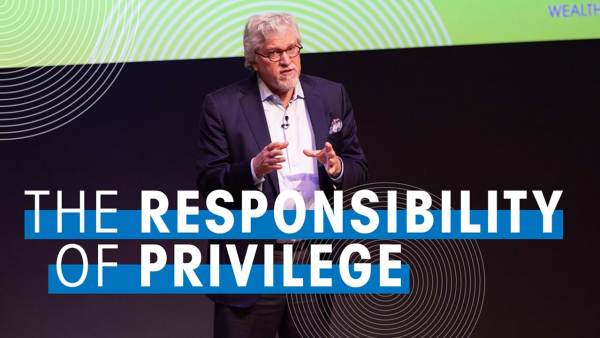
On using power and privilege for change featuring Jeff Raikes
Jeff Raikes, co-founder of the Raikes Foundation, says dismantling racism requires philanthropy to ditch its colorblind approach. People in power need to acknowledge that privilege is invisible to those who possess it. Privilege and power need to be transformed into a force for changing our society for the better.